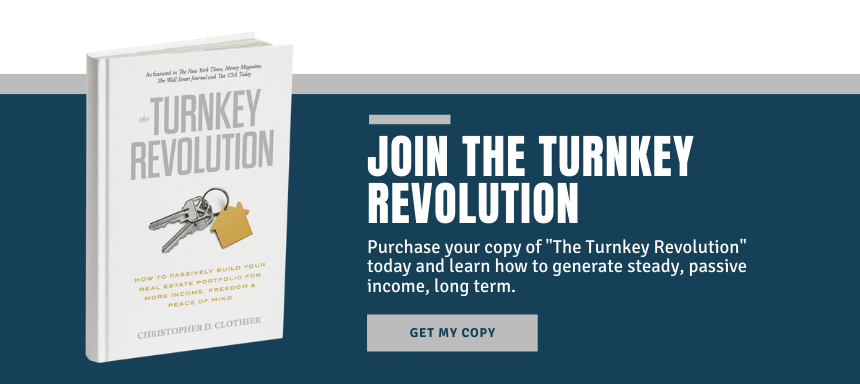 Where our finances are concerned, we tend to think in “big picture” terms. It’s about our investments, paychecks, house payments, and big bills. We rarely consider the small, seemingly insignificant actions throughout our day and how they can impact our wealth and financial future.
Where our finances are concerned, we tend to think in “big picture” terms. It’s about our investments, paychecks, house payments, and big bills. We rarely consider the small, seemingly insignificant actions throughout our day and how they can impact our wealth and financial future.
Whether you’re saving for retirement, working towards a new investment property acquisition, or simply trying to be smarter with your money, these are six things seemingly insignificant but critically valuable things that can shape your financial wellbeing.
6 Small But Highly Effective Money Management Strategies
Save "Found" Money
Whenever we receive a bonus, birthday money, a tax return, or anything we consider “found money,” the temptation more often than not is to spend it. We are more inclined to treat ourselves to something than to save this money. This is based on the impression that because we would not have had the money otherwise, we would not miss it if we put it towards a purchase rather than savings.
This, however, isn't the thinking of the financially savvy. When extra money shows up, no matter what the origin, they know that the best course of action is to throw it into savings. Whether it's $20 or $2,000, this “found money” can build up into savings that can buy into big investment opportunities, finance a child's education, or fuel a retirement.
Rethink “Insignificant” Purchases
One of the biggest financial drains we deal with on a daily basis is small, seemingly insignificant purchases that add up over time. The more you can cut out the fat, so-to-speak, the more healthy your budget will be and the more you can put your money towards building lasting wealth. Think of these purchases like poking holes in a life raft. A small hole might not sink you, but many will.
So what do “insignificant” purchases look like? They look like daily coffees from your local cafe, eating out to lunch regularly (or eating out in general) without budgeting for it. It's grabbing extras at the checkout line, making purchases for yourself or your children on phone apps and games, and hitting the vending machine. These things don't usually cost all that much, but they do add up. A few dollars here or there can be hundreds, if not thousands of dollars spent each year. That's money you could be saving instead!
Consider Your Usage Rate
Have you ever been plagued by guilt because you aren't using the gym membership you pay for month after month? At the same time, you refuse to cancel, because this, in some way, seems like admitting defeat? Most of us have been there. At the same time, we have to recognize our usage rates and how they play a role in our finances. If you aren't using a gym membership, for example, it makes no sense to pay for it month after month. You might as well throw your money away. Using this membership once in a blue moon or with great inconsistency likely doesn't give you the usage rate to justify it, either.
For anything that you pay for on a subscription basis, you have to ask yourself how much you actually use it and if you are really getting a good value for your money. This can be services, like a gym or streaming service, but it can also be goods, like subscriptions to magazines, meal prep services, or other "fun" items.
Related Article: 5 Golden Financial Strategies that Save Money Around the Clock
Make Small Cutbacks and Compromises
Do you really need to make your daily coffee a large? Do you need to order queso at the Mexican restaurant every time? Why order appetizers and dessert? You know your meal will be plenty big. Also, you can probably drink water and skip the soda.
A $2.50 drink at a restaurant each time you eat out, say, four times a week, is $80 per month that you could be saving by just choosing to drink water. If you want to get your financial house in order, this is how you do it—not by the big, radical changes—but by small sacrifices. Start small and handle the things that are draining your finances that you might not even think about. Then you can tackle the big stuff.
Take Stock of Your Subscription Services
We've already mentioned usage rates, but it's important to hit on subscription services a little bit more. These types of services are more and more prevalent these days. Most of us use them for streaming television and music, but there are also subscription services for meal prep, magazines, clothing and socks, lifestyle, jewelry...just about anything under the sun.
Some of these services charge you monthly regardless, others give you options to skip a month (if you remember). Regardless, you're probably subscribed to more things than you realize. One thing we can all benefit from it a quick assessment of all of our subscriptions, what you actually use and enjoy, and what you can realistically cut and do without. This will save you a lot of money each year.
Utilize Banking and Budgeting Apps
One of the big benefits of the modern era is our access to helpful banking and financial technology. No longer do we have to balance checkbooks by hand or go to the bank to inquire about our balances. With budgeting apps like Clarity and Mint, you can see a breakdown of your major spending categories, get regular updates of how much you're spending, and work to adjust your strategy to improve your financial health.
Whether you want general financial management help or you're trying to invest and attain longer-term goals, it all starts with a firm grip on the basics of finance. These small steps will help you get your footings and exercise more control over your money so that you can craft the financial future that you want for yourself and your family.
Looking for more ways to improve your financial health and real estate investing? Check out the video below to see if you're making these 11 mistakes as an investor!













